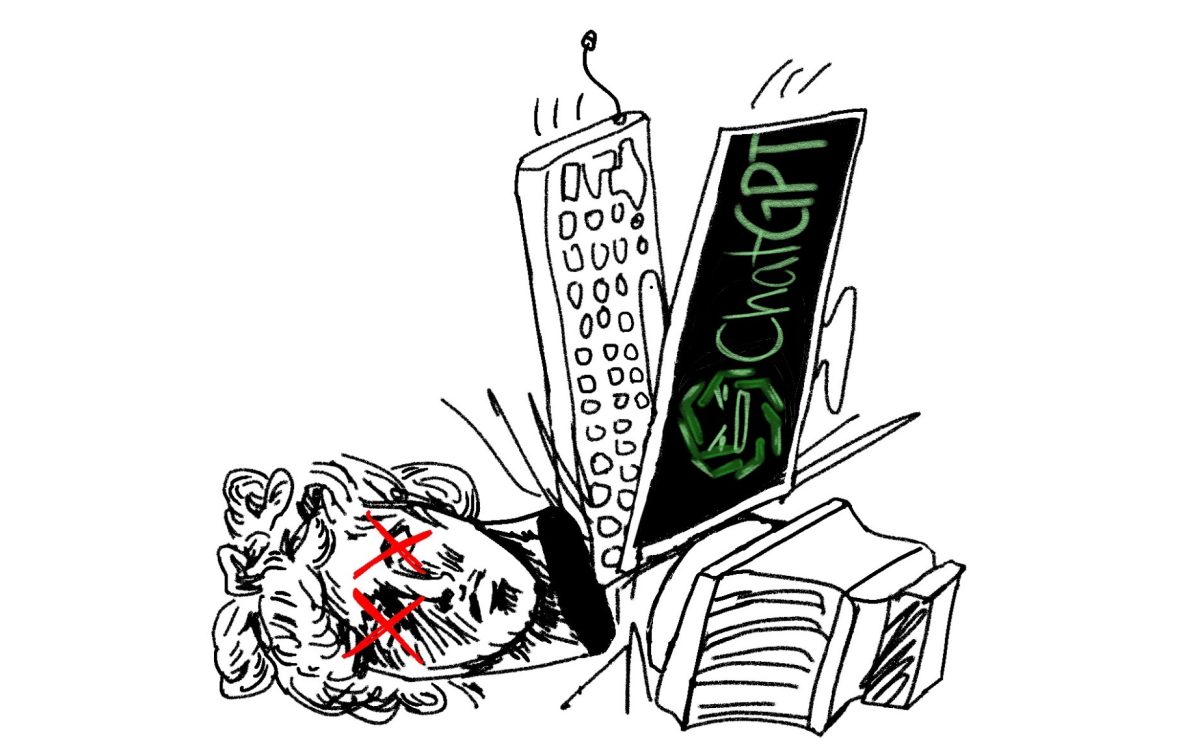By Alexandra Milman
My friends and I were figuring out who got the least amount of sleep. I got five hours, one of my friends got four hours, but the crowning achievement of my group was one and a half hours. This is not normal. My grandfather once told me how angry he would be when my aunt stayed up until midnight doing assignments because that was unusual behavior at the time. Although the overachieving culture at Great Neck South results in better marks, one major contributing factor is the unhealthy conversations between students.
South is undoubtedly a high-achieving school as shown in the list created by Niche showing that we are ranked number one in Long Island. This could not be the case if the students were not hard-working. Because of this, some argue that the overachieving culture of South is helpful. Students are encouraged to try their hardest and push themselves for the best grades. Senior Alicia Porges said, “In a way, the overachieving culture puts pressure to keep up or be better.”
This part of the South student lifestyle is a result of inter-student pressure. When people brag about a high grade, the others around them want to study harder to keep up. It is this interpersonal discourse that motivates most students to work harder. Porges added, “I feel better about myself if I do as well as others or better.”
While this competitive environment fosters better scores, this atmosphere results in declining physical and mental health in many students. The physical stress that comes with the aforementioned lack of sleep is amplified by the competitive rhetoric that occurs daily.
While the origin of the overachieving culture is unknown, the discourse between students does not help the situation. Math teacher Mr. Francis Miata said, “It’s a chicken and the egg situation. It’s the mentality students have when you care and things are hard.” Despite this ambiguity regarding the source of the overachieving culture, these conversations lead to the normalization of behavior that is detrimental to students.
One of many contributing factors to these late nights working and stressing over school are the unhealthy discussions previously stated, which cause people to exaggerate their effort. Thus, setting impossible standards for everyone else. (I actually got 5 and a half hours of sleep.)
Changing the culture at South would require a systematic change. While it will be difficult for people to change their actions and take responsibility for what they say and do, mindfulness could help people become aware of what they say since it is a practice in becoming aware. Mindfulness is also a helpful treatment of the physiological responses to stress. . Taking time out of one’s day and breath is very calming. Mr. Miata says, “The world is a rushing river and we need time to reflect.” Mindfulness is defined as maintaining one’s awareness of the present moment and becoming at peace with uncomfortable feelings. Focusing on the important aspects of life such as friends, family, and personal health will put grades into perspective. Those who practice mindfulness and have good relationships with family and friends can counter the stress from school, but it is not a complete solution.
Much like mindfulness, this unhealthy banter is one of many facets of the overachieving cultures. However, just like the addition of mindfulness, the removal of this unhealthy rhetoric could help with the more competitive elements of school life.













